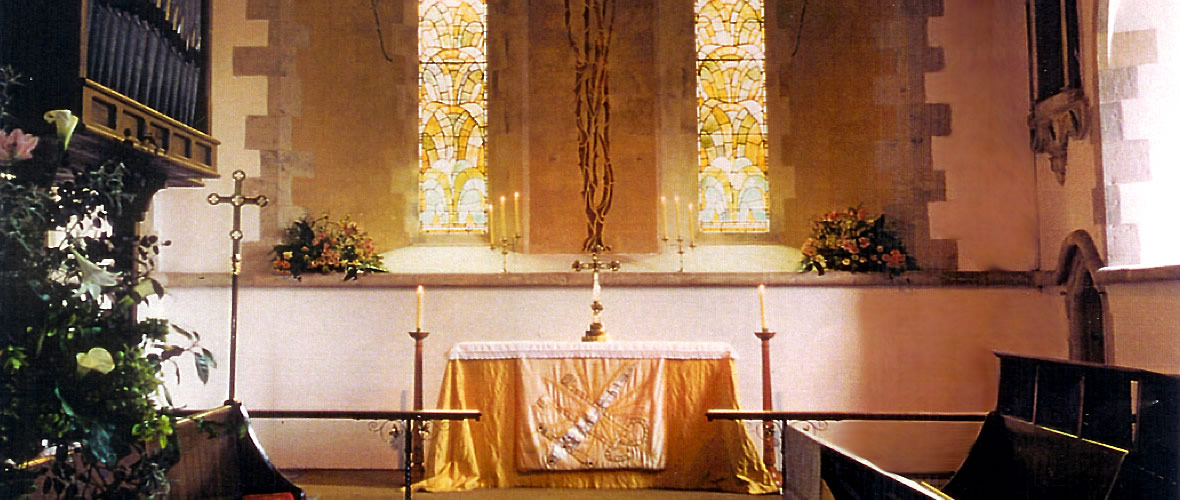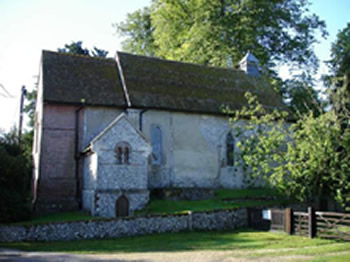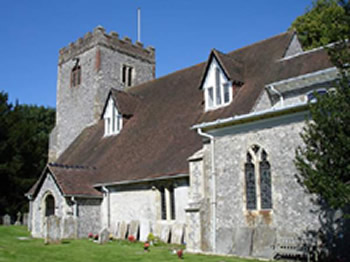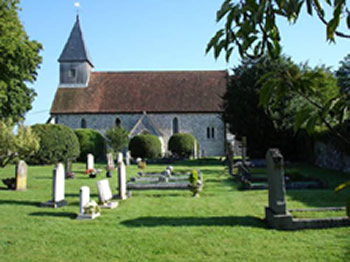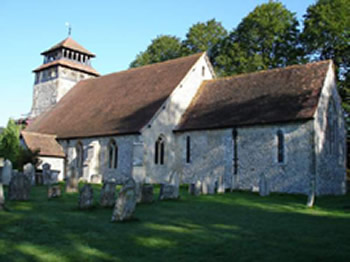For Holocaust Memorial Day 2021
 Eva’s Story
Eva’s Story
With an introduction by Cathy Mathews
My mother Eva wrote a brief autobiography and I think it is worth reading. I am focussing on the part about my mother’s life as a Jewish girl before and during the Second World War. Some is in her own words, some in mine.
Eva was born in Vienna in 1921. Her parents were first cousins. They were Jewish, but drifting into agnosticism as undreamt-of opportunities lured them away from the ghetto-mentality of their forefathers. Her father, Ati Mandl, (short for Arthur), was a man of absolute integrity, unassuming, sensitive, inclined to melancholy, with a childlike sense of humour, unselfish, flexible in his thinking and with a deep appreciation of music and literature. Eva idolised her father. Her mother, Hedi, was thirteen years younger than Ati, attractive, vivacious, sociable and emotional.
Eva had a younger brother, Franzi, (who eventually got a Doctor of Science degree from Oxford) and sister, Hella, (who also went to Oxford).
When Eva was two years old her family moved from Vienna to Berlin. Ati was an engineer who worked for the AEG. Eva did well at school and got into a Gymnasium (grammar school).
Eva always said that her father’s religion was music. Most evenings after dinner Ati would sit at the grand piano and play; not only music written for the piano but operas, lieder, symphonies, etc. Eva therefore became familiar with a wide variety of music. And then Eva and Franzi started having violin and cello lessons and soon formed a family piano trio.
Ati used to read aloud to the family, both German classics, particularly Thomas Mann and Goethe, and world classics, like Dickens. Lively discussions would follow.
Eva used to say that her parents gave her an abiding love for things of the mind, the arts, literature and ideas, (at the expense of anything remotely sporty)!
This is what Eva wrote about the impact of the Nazis on her life. In her own words:
“From 1933 onwards, times became more and more fraught for our parents. At the beginning of the Nazi era no one quite foresaw what cataclysms would descend upon the world, but the signs were there and becoming clearer day by day. As foreigners – Austrians – we were safer than other Jews, but no one trusted that kind of ‘safety’ in an utterly lawless regime. It was not an easy decision for my father to give up his excellent job and try to find work in some foreign country. He still hoped that things would improve, that Hitler would be ousted or would modify his extreme policies. Mother, emotional and desperate, urged immediate departure, no matter where, no matter how, quite an irrational idea with three young children, apart from the fact that no country would admit immigrants who would certainly be a liability to the state, so there was much trouble and tension at home. We children felt completely secure at home, but in the outer world, i.e. at school, it slowly dawned on us that things had changed. I remember many instances of this change. For example one of my good friends from one day to the next refused to speak to me. A new subject appeared on our timetable called ‘Rassenkunde’, (racial knowledge). A kind of large map was unrolled in front of the class, divided like a chess board into squares. On each square was a portrait with a label beneath, such as ‘Mongoloid’, ‘Negroid’, etc. In the centre was a classically beautiful face, blonde and blue-eyed, ‘Germano-Aryan’ and at the bottom was a grotesque caricature of a Jew, hook-nosed, mean, ugly; the real purpose of this exercise. It was not too easy for the Jewish girls in the class to sit through this lesson!
Before 1933 I used to get good marks for most of my pieces of work as I enjoyed school and tried hard. After that fateful year I never got good marks again, though I worked as hard as ever. Teachers could not risk giving Jews top marks. Children’s sense of fairness is strongly developed and this obvious slight rankled for a long time.
Not all the staff were such good Nazis. Our headmaster was a decent man. One day we watched him from the windows of our class-room being led into a large, black car by uniformed Nazis. He never came back. In his place came a man with a large swastika badge in his buttonhole whose first action was to hang a big portrait of Hitler behind his desk.
One day a new girl appeared in our class, a thin little thing with blue eyes and stiff, blond pigtails. I still remember her name was Zilli Oberdorfer. As was usual, she had to stand up and give the class teacher her personal details. When it came to ‘religion’ this fair little thing said to everyone’s amazement ‘Jewish’, whereupon the class started booing and shouting ‘Not another one!’ and Zilli sobbed her heart out.
Round the corner from my school was a small paper shop owned by two little, old, Jewish spinsters, who to our amusement were called the two Misses Riese, which is the German word for ‘giant’. They made a precarious living by selling exercise books, pencils, rubbers, etc., to the girls from the school. Then the edict went out that no one was to buy in Jewish shops – ‘Kauft nicht beim Juden’ was smeared on the shop windows owned by Jews and overnight the Misses Riese were faced with starvation. They locked their door and killed themselves. Our parents tried to shield us as far as possible from such horrors, but some inevitably percolated through to us.
Some of these snippets of memory are less depressing. My father took my brother and me to a performance of ‘Fidelio’ given under the auspices of ‘Kraft durch Freude’, an organisation set up by the Nazis to bring culture to the nation at large. What we did not know in advance was that on this occasion Goring himself was to be guest of honour and in due course he took his seat in the centre box in the dress circle. In this opera occurs a very famous passage, in which a chorus of political prisoners, unjustly incarcerated by a tyrant, sing of their hope of being freed someday. During this performance, at the end of this scene the audience burst into spontaneous, tumultuous applause, suddenly followed by total silence as the mountainous figure of Goring rose in his box and bent over the balustrade, peering down into the stalls.
By 1935 it had become clear that there was no future for the likes of us in Germany, though no one foresaw the full horror of what was to come. My father cast about for a possible post abroad. Eventually he was offered a post with Metropolitan Vickers in Sheffield, which he gladly accepted. The AEG were relieved to see the last Jew on their payroll depart, although my father had for many years held a top post to their total satisfaction. But now they could display above the factory’s main gate the obligatory placard with the message: ‘Diese Firma steht geschlossen hinter dem Fuhrer’, which means: ‘No Jews are employed here’. When Dad walked out of the gates for the last time, the head porter ran after him and whispered to him, ‘I am ashamed, Dr Mandl, I am ashamed’.”
Eva and her siblings then spent a year in Vienna with their grandparents while her parents got things set up in Sheffield. Eva had a wonderful time, enjoying the cultural riches of Vienna, going to the opera, having dancing lessons, etc. She attended a ball at the Hofburg, Vienna’s Buckingham Palace, dancing on huge, parquet-floored, crystal-chandeliered, Rococo rooms to music provided by the strings of the Vienna State Opera Orchestra.
In Aril 1937 Eva arrived in Sheffield. In her own words:
“The kindness and helpfulness of or new neighbours and of my father’s new colleagues greatly helped us to settle in. We felt a sense of relief and thankfulness that we had found a safe haven. All my parents’ energy was now directed towards helping the other members of the family to get out of Germany, and that meant out of Austria, as it was clear that Austria would soon cease to exist. Dad gave guarantees for one of his sisters, his brother and his wife, two nieces and his mother. “
Most of Eva’s family did manage to get out of Germany in time, due entirely to Ati’s foresightedness, but Ati’s mother and one of his sisters died in a concentration camp.
As the war continued Eva and her family lived in a large Victorian semi in Sheffield with perhaps ten plus relations, to whom they gave shelter. Even though her English was rudimentary she managed to pass the School Certificate in one year, in a number of rather random subjects.
Eva writes about life in England during the war. In her own words:
“As we were technically ‘enemy aliens’ we were subject to various restrictions. For example our car was taken away, we were, for a time during and after Dunkirk, not permitted a radio, we had throughout the war a curfew, i.e. we had to be home by 10 pm. The news embargo resulting from being radio-less our neighbours helped us to overcome, by putting their radio on at maximum strength and opening their windows wide. Eventually we had to go before a tribunal to be classified according to our reliability as enemies of Hitler. The judge before whom we appeared as a family, Judge Essenhigh, was a veteran of world War one, an utterly charming, cultured and sympathetic gentleman. My father was doing important war work, which was highly secret and the irony of the situation did not escape the Judge.”
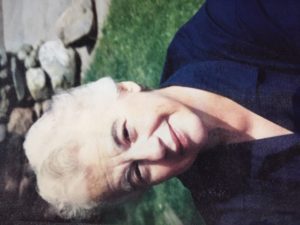 Eva studied at Sheffield University and got a first class degree in English, French and German. She then had a successful career as a language teacher, married, and had two children. Her husband, Wolfgang, was also a refugee from Hitler and also an amateur musician (a cellist).
Eva studied at Sheffield University and got a first class degree in English, French and German. She then had a successful career as a language teacher, married, and had two children. Her husband, Wolfgang, was also a refugee from Hitler and also an amateur musician (a cellist).
Eva and Wolfgang were never obviously interested in their Jewish heritage. They were eager to be assimilated and always hugely grateful to the British.
PS Eva became a Christian and was baptised in her eighties.
A Resource for use with Children for HMD
This PowerPoint for Holocaust Memorial Day has been shared by St Mary’s Junior School, Basingstoke to support those wishing to mark Holocaust Memorial Day once again. Helpful notes for parents/teachers have been added to the PowerPoint slides. Thank you to headteacher Caroline Welch for sharing this with us.

